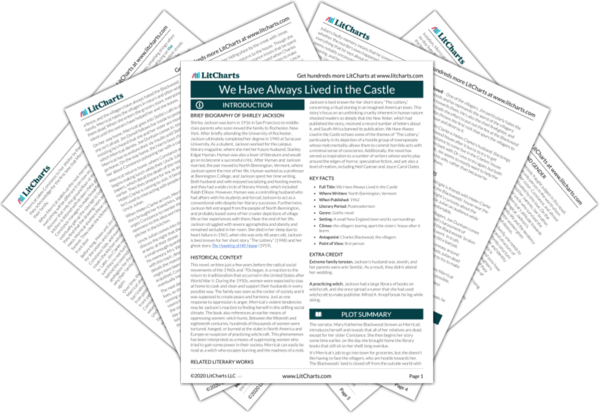Constance and Merricat keep most of their money in their father’s safe, which sits in his study. Their father was very good at managing money, and Charles, like their father, fixates on the safe as the ultimate object of his desire. In contrast to their male relatives, Merricat and Constance completely disregard the value of money, seeming confused by Charles’s obsession with it. They generally use money only to buy groceries, and after the fire, they don’t use money at all, since they depend entirely on their vegetable garden and the food that the villagers leave for them.
The safe can be said to represent the male Blackwood lineage of wealth and social status, as well as the broader capitalist patriarchy of America. By repudiating the need for money and happily removing themselves from participation in capitalism, Merricat and Constance deal a blow to this institution which is so often viewed as essential. Notably, the safe remains in their house despite the best efforts of Charles and the villagers to remove it. Thus, the sisters distance themselves from money not because they don’t have access to it—they do—but because they simply see no need for it. Furthermore, if Blackwood masculinity depends largely on wealth and others’ recognition of it, Merricat and Constance destroy the oppressive Blackwood men not only by killing or rejecting them, but also by ignoring the material riches they left behind and thus banishing them to irrelevance.








